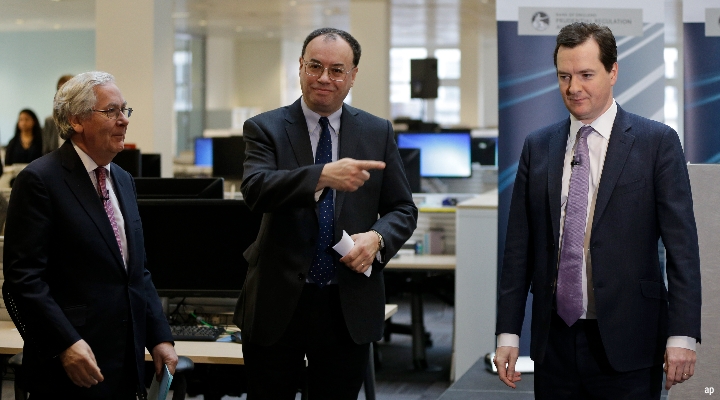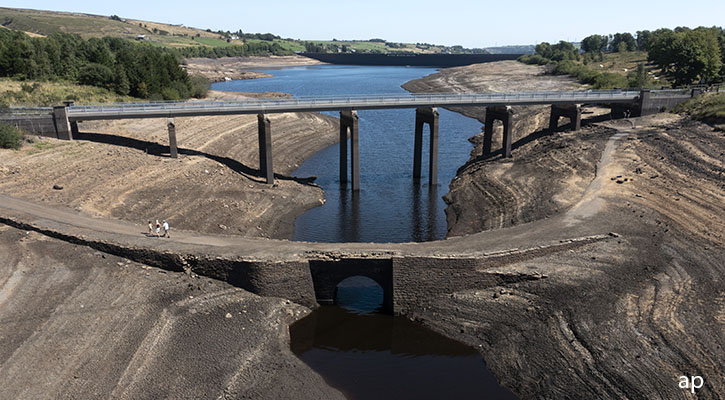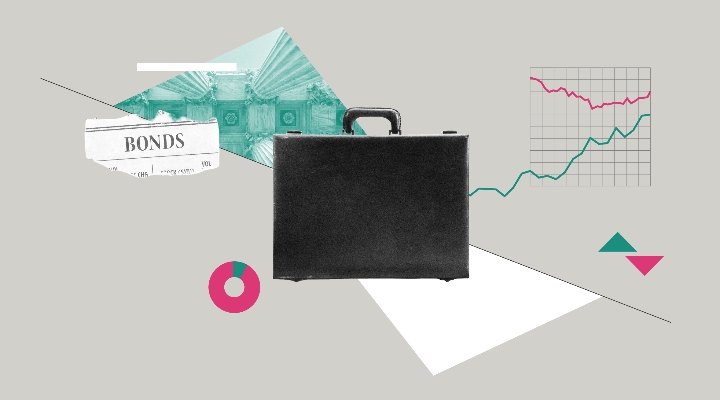
If there was a brand of salt called Panorama is a Consumer Programme you could certainly take a pinch of it while watching the BBC’s latest investigative efforts.
Broadcast on Wednesday night this week, The Billion-Pound Savings Scandal tells the story of the Blackmore mini-bond debacle. It’s been described by The Times as "a true horror story for grownups", while one asset management insider claimed it was a story of "indefensible conspirators."
I like that first take. Years ago, these sorts of programmes were among Panorama’s more esoteric offerings, but their relevance has increased in line with our dramatically increased consumer vulnerability to internet marketing. The rise of self-taught graphic design, social media, and video content has done more damage than we care to admit.
I’ll summarise the story. A company distributed risky property mini-bonds investors say never paid out in full, before going bust. The sales techniques were a mix of the modern and traditional. They’re now asking where their money went, but also why someone didn’t step in sooner. Cue confusion, ambulance chasing, and much gnashing of teeth.
Rewards for Failure
The first thing that strikes you when you watch it is we have been here before, and the episode itself is keen to point that out.
If the documentary is to be believed, the common denominator in this case and others is a weakness of oversight by the authorities in charge of keeping consumers safe. The Financial Conduct Authority (FCA) comes in for huge criticism, both over Blackmore but also over London Capital & Finance (LCF) and the Neil Woodford fund closure.
There is evidence the FCA did something to fulfil its duties in response to Blackmore, but it isn’t difficult to feel it didn’t do enough. As for Andrew Bailey taking the top job at the Bank of England after leaving his post as chief executive at the regulator, it’s an open goal. Whether you agree with the posting or not, the chain of events leaves the British establishment wide open to accusations it offers rewards for failure.
The second thing you’ll notice is the style in which the narrative is explained. Expert investors will find themselves dissatisfied at the lack of detailed explanation about how the business actually worked. But that’s why that pinch of salt is needed. It’s a consumer show. It’s not even aimed at the DIY experts. Never mind the professionals.
The third thing (and this is the bit I found most engrossing) is the range and shape of the characters used to dramatise very real events.
There are the chameleonic businessmen painted as dishonest ne-er-do-wells. There’s the sluggish regulator, creaking into action as time slipped away. There’s the helpful bystander in the form of a City trader who, in a brilliant and chance plot twist, heard what was going on through the walls of his office. He alerted the FCA to what was happening.
Then there are the victims: middle-Britain savers who were repeatedly reassured what they were doing with their cash was fool-proof, but found themselves in despair afterwards. Among them an Iraq veteran, a seriously ill man and his wife, an intelligent retiree, and a professional accountant. If not financially, each is emotionally ruined by the experience.
Then the journalist, one Jack Gilbert (a former colleague of mine), who is experienced and patient enough to handle complexity and be outraged by the implications, but deft enough to put it in plain English on camera.

Finally, and this is my real point, the power brokers.
Kevin Hollinrake, the Conservative MP for Thirsk and Malton coming up to his first-year anniversary on the "powerful" Treasury select committee; Peter Grant, the Scottish National Party MP for Glenrothes and Central Fife, who raised the issue in the House of Commons over a year ago; Susan Kramer, the Liberal Democrat peer who sits on the House of Lords economic affairs committee; and Elizabeth Gloster, whose inquiry into LCF made damning conclusions about the FCA’s capacity to deal with serious financial wrongdoing.
And in the background, George Osborne (pictured above with Mervyn King and Andrew Bailey in 2013), whose pension freedoms ushered in not just rule changes but a whole culture shift in personal finance and risk.
Another Agenda
Not mentioned in any great detail in the programme was what our Lib Dem peer and Conservative MP have in common.
Separate-but-related to Blackmore, Hollinrake and Kramer both want the definition of a whistleblower to change. Currently it is defined in employment law. You essentially have to be an employee of an organisation to blow the whistle on it when something goes wrong.
Those terms are useful to an extent. They allows authorities – and regulators – to deal with the problem in one place. But they also impose difficult limitations on the process, potentially shutting out chance bystanders (like our crucial trader), interns, or members of the public (in my view) by relegating them to a lower-status. When I spoke to Kramer and Hollinrake last year, they both independently said the definition of a whistleblower needed to change. It can be anyone. They want an Office of the Whistleblower to crystallise that.
Though it would probably cause an almighty legal headache, it’s difficult to reject their case.
Political Mis-Selling?
Members of the public should feel that, if they pass extremely sensitive information on the most severe types of criminal wrongdoing to an authority, they will be believed, protected, and prioritised. That said, I would add just one more pinch of salt to this rather difficult dish.
The best whistleblowing policy in the world probably won’t stop the next Blackmore from blazing a trail of destruction through the lives of people who now feel they should’ve known better. Kramer’s theory is that no regulator can do everything, so society must club together to provide that threat of exposure and censure to the ne’er-do-wells.
That’s all very well and good, but it shows the predictable behaviours that emerge in the aftermath of a crisis. A regulator on the back foot. Politicians desperate to look busy fixing things with new ideas, budgets and paperwork. An exasperation with retrospective action.
It seems to me there are fewer people looking for the root cause. To my mind it’s a naivety about unintended consequences, an over-confidence bordering on political mis-selling, and a profound unwillingness to plan for and prevent entirely foreseeable consequences of agressive liberalisation.
As such, Panorama made a clear case for some kind of change to a relatively new world. Who's making the case that the whole thing was a terrible idea in the first place?
Ollie Smith is UK Editor at Morningstar





























